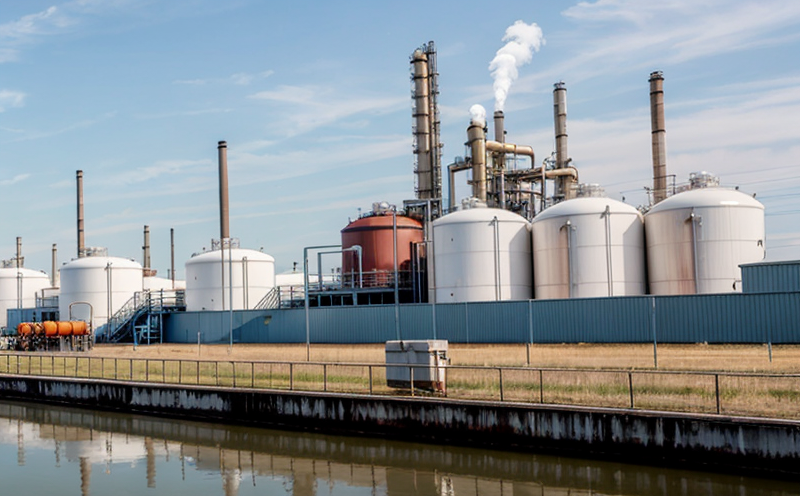NF EN 12457 Leaching Safety Testing of Industrial Waste
The NF EN 12457 standard is designed to ensure the safe management and disposal of industrial waste. This test evaluates the leachability of hazardous substances from solid waste into aqueous solutions, thereby predicting potential environmental impacts. Compliance with this standard is crucial for industries involved in manufacturing, chemical processing, and waste management.
The process involves simulating real-world conditions where waste materials may come into contact with water over extended periods. This simulation helps determine the concentration of potentially harmful elements that could leach out if the waste were to be improperly disposed or handled. The test is particularly important for industries dealing with heavy metals, solvents, and other hazardous chemicals.
The NF EN 12457 standard provides a structured approach to ensuring that industrial waste does not pose an environmental risk when released into the environment. By conducting this test, companies can demonstrate their commitment to sustainable practices and regulatory compliance, thereby safeguarding public health and the environment.
For industries such as electronics manufacturing, automotive production, and pharmaceuticals, where even trace amounts of harmful substances could have significant ecological effects, NF EN 12457 testing is indispensable. The test results can inform decisions on waste management strategies, recycling processes, and the development of safer products.
The methodology involves placing samples of industrial waste into a leaching solution under controlled conditions that mimic natural environmental exposure. The leachate is then analyzed for various parameters including pH levels, heavy metal concentrations, organic compounds, and other indicators of toxicity. This comprehensive approach ensures that all relevant factors are considered in assessing the potential risks associated with the waste.
Understanding these complexities allows quality managers to make informed decisions about waste treatment processes, ensuring not only compliance but also minimizing environmental impact. Compliance officers can rely on this test to ensure regulatory requirements are met, while R&D engineers use the results to innovate safer and more sustainable practices in their industries.
Scope and Methodology
| Test Parameters | Methodological Steps |
|---|---|
| Leachate Concentration Measurement: | - Preparation of leaching solution based on specified conditions. |
| Sample Incubation: | - Samples placed in the leaching solution for a defined period. |
| Leachate Collection and Analysis: | - Leachate collected periodically to monitor changes over time. |
| Chemical Analysis: | - Comprehensive analysis for heavy metals, organic compounds, pH levels. |
Why Choose This Test
The NF EN 12457 leaching safety test is essential for industries dealing with industrial waste. It provides a reliable method to assess the potential environmental risks associated with improper disposal or management of hazardous materials. By ensuring that harmful substances do not leach into soil, water bodies, and air, this test supports sustainable practices and regulatory compliance.
For quality managers, this test offers valuable insights into waste treatment processes, helping them to identify areas for improvement in their operations. Compliance officers can leverage the results to ensure ongoing adherence to international standards like NF EN 12457, thereby reducing legal risks associated with non-compliance.
R&D engineers benefit from the detailed data provided by this test as they explore safer alternatives and more sustainable waste management solutions. The test also assists in the development of new products that are less harmful to the environment, contributing to a greener industrial landscape.
Industrial chemical safety testing is crucial for protecting public health and the environment. By adopting NF EN 12457 leaching safety testing, companies can demonstrate their commitment to sustainability and responsible waste management practices, thereby enhancing their reputation in the marketplace.
International Acceptance and Recognition
The NF EN 12457 standard is widely recognized internationally for its rigorous approach to assessing industrial waste leaching. Its acceptance by regulatory bodies across Europe and beyond underscores the importance of this test in ensuring environmental safety.
This standard is aligned with global efforts towards sustainable development, making it a preferred choice for industries seeking to comply with international best practices. The NF EN 12457 methodology has been endorsed by numerous organizations including the European Commission and various national standards bodies.
The widespread adoption of this test demonstrates its value in promoting responsible waste management across different sectors. By adhering to this standard, companies can ensure their operations are not only compliant with local regulations but also meet international standards, thereby enhancing their global competitiveness.





